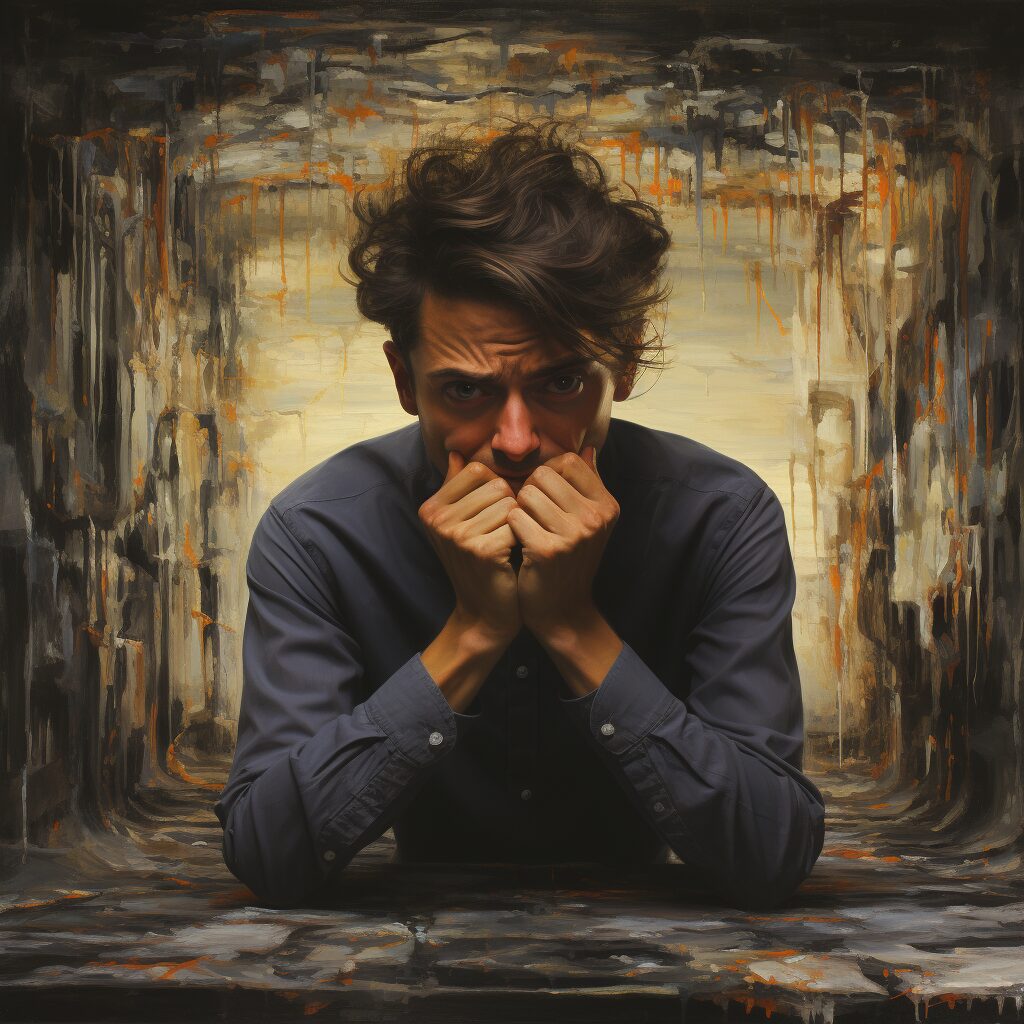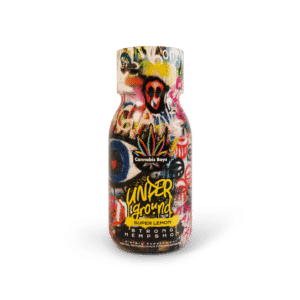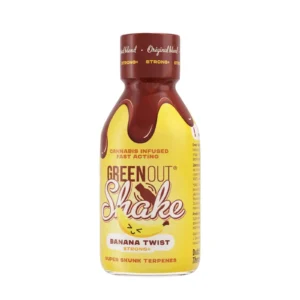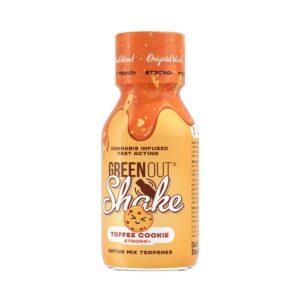Contents
Medical cannabis and hemp extracts are gaining popularity as substances supporting the treatment of anxiety disorders. The number of scientific studies on this topic is also constantly growing. Internet messages regarding the use of dried hemp or hemp extracts for anxiety are contradictory: some claim that THC and CBD worsen anxiety, others believe that they alleviate it. First of all, it is worth finding out how psychiatry defines anxiety disorders and what science says about the use of hemp phytocannabinoids in people experiencing anxiety.
What is the difference between fear and anxiety and how does stress relate to them?
Fear is an important emotion whose task is to inform us about a real threat. Both in humans and other animals, fear is an adequate response to a dangerous factor appearing in the environment. Fear mobilizes us to action: fight or flight.
Anxiety, on the other hand, is an inadequate reaction - it appears in situations where there are no factors that pose a threat to us.
Stress, from a psychophysiological point of view, is a state in which the body reacts to changing external or internal conditions and prepares to face them. It is understood as a disturbance of the balance (homeostasis) of the body.
A stressful stimulus triggers the activation of the nervous and hormonal systems. The most important "chemical components" of stress include neurotransmitters: adrenaline (adrenal glands), norepinephrine (adrenal glands), dopamine (central nervous system) and the hormone cortisol (adrenal glands).
The relationship of fear, anxiety and prolonged stress can be described as self-perpetuating: excessive exposure to threatening stimuli will lead to a constant feeling of threat, which is associated with constant arousal of the body. Chronic stress may cause the development of various somatic diseases and mental disorders , including anxiety disorders.
Stress and anxiety disorders
Living in constant stress, according to WHO, is a risk factor for many diseases and ailments (including mental ones), the source of which modern medicine sees in excessive strain on the body.
Stress-related ailments include:
- changeable or depressed mood,
- mood disorders, e.g. depression,
- anxiety disorders, neurosis,
- decreased immunity (negative effect of excess stress-related hormones on the immune system),
- cardiovascular diseases,
- digestive system problems,
- chronic or recurring pain.
Types of anxiety disorders
Psychiatry defines anxiety disorders as anxiety that has intensified into persistent forms, long-lasting conditions that are not a response to external stimuli, occurring with additional symptoms of depression and somatic symptoms.
An advanced form of anxiety disorder may prevent the person experiencing it from functioning. There are many ways in which people experience anxiety, which is why there are several types of anxiety disorders:
- Generalized Anxiety Disorder:
Almost constant feeling of tension and anxiety, accompanied by psychosomatic symptoms, e.g. muscle and/or abdominal pain, heart palpitations, feeling of choking, excessive sweating. Somatic symptoms in generalized anxiety disorders have their source in the psyche, but they are very "physical" and "real" - they can be noticed and measured from the outside.
- Social Phobia:
The anxiety of people experiencing social phobia is primarily related to being judged by other people, being humiliated or criticized. Therefore, people experiencing social phobia feel afraid of social interactions, public speaking, speaking in large groups of people or even being in a larger group. Finding yourself in such a situation may trigger emotions such as anxiety, fear, shame and the above-mentioned somatic reactions.
- Compulsive-obsessive disorder (OCD):
This type of anxiety disorder is primarily manifested by performing the same activity repeatedly. People experiencing OCD try to overcome fear in this way. The symptoms most popular in pop culture are constant hand washing, counting steps and symmetrical positioning of objects. This disorder may also present with persistent catastrophic thoughts.
The best recognized symptom is constant hand washing, which may be an expression of fear of germs and disease. There are also obsessive thoughts, for example of a catastrophic nature. The person tries to calm them down by performing a specific activity.
- Post-traumatic stress disorder (PTSD):
Anxiety and other symptoms that may appear after experiencing a traumatic event, i.e. an extremely stressful event that exceeds a person's adaptive and emotional abilities. Such events include: the experience of war, disaster, traffic accident, cataclysm, assault, rape, torture.
Symptoms of PTSD do not appear in all people who have experienced a traumatic event. In some people, the acute stress reaction (ASD) is short-lived - lasting up to four weeks. PTSD is diagnosed when symptoms last for more than a month. Symptoms of PTSD include: tension, anxiety, recurring memories of the event, feeling of fatigue, "flashbacks", nightmares about the trauma, avoidance of situations associated with the event.
- Panic attacks, panic attacks.
A panic attack is a sudden attack of very strong anxiety that is unrelated to external factors (panic disorder) or is triggered by certain stimuli, e.g. in social phobia by a difficult social situation. The symptoms of a panic attack may vary from person to person. The most common of them include: dizziness, hot flashes, sweating, heart palpitations, shortness of breath and chest pain, feeling of choking, shaking and/or numbness of the body, depersonalization, nausea .
Symptoms of anxiety disorders
There are many types of anxiety disorders, but there are certain symptoms that occur in most of them:
- constant feeling of anxiety,
- bow,
- tension,
- difficulty concentrating,
- irritation, irritability,
- depression, sadness.
Medications for anxiety disorders
People experiencing anxiety disorders, if determined by a psychiatrist that they should be treated pharmacologically, are usually given one of two types of medications:
drugs for long-term therapy (e.g. SSRI, SNRI groups) or drugs for short-term use, the effect of which is very quick, but when used in the long term they are highly addictive (benzodiazepines).
In the case of drugs for long-term therapy, the effect is observed after 2-4 weeks of use, and during this time the so-called “paradoxical reaction” – intensification of anxiety symptoms. Choosing the right drug and the optimal dose for a given person can be time-consuming and frustrating, but once the drug is well selected, most people see significant improvement.
Benzodiazepines work quickly, eliminating or reducing symptoms of anxiety within 15-20 minutes. They are sometimes prescribed to people in crisis or when starting "long-term" anti-anxiety and antidepressant drugs.
The treatment for anxiety disorders recommended by psychiatrists and psychologists is group and/or individual psychotherapy.
Anxiety disorders and CBD and THC
Let's look at the research on the use of hemp cannabinoids in people diagnosed with anxiety disorders.
- Hemp cannabinoids work similarly to SSRI drugs - they help maintain optimal levels of serotonin in the body . Similar effects of cannabinoids have been observed with dopamine.
- Another study shows that high doses of CBD used in people experiencing social anxiety disorder reduced levels of anxiety and discomfort and increased cognitive abilities in simulating a stressful social situation.
- A study published in the Journal of Affective Disorders shows that medical cannabis reduces symptoms in patients with OCD (obsessive-compulsive disorder). Surveys of 87 people experiencing OCD were analyzed, which included answers to questions about compulsions, obsessive thoughts and anxiety levels. Participants completed well-being diaries for 31 months, taking into account how long after vaporizing dried cannabis they described their emotions and behaviors.
- A similar study took place at Washington State University in which people experiencing anxiety disorders kept diaries of their emotions and compulsive behaviors. As many as 60% of them observed lower intensity of compulsions during cannabis treatment, 49% experienced fewer obsessive thoughts, and 52% observed a reduction in anxiety.
CBD dosage for anxiety disorders
taking CBD with the minimum dose: approximately 10-20 mg per day and gradually increase the dose until you achieve results. Various doses of CBD were used in the studies, tracking them may be a guide for people who would like to start supplementation.









[…] using THC for anxiety is nothing new. In the scientific literature you can find studies showing [...]
[…] dried female inflorescences are used, in which the main active substances are THC and CBD. Thanks to the content of over 100 active cannabinoids - compounds that affect […]
[…] cannabis for relieving stress and anxiety may be a key factor in the process of inhibiting the occurrence of acne. As you know, […]
[…] note that regular and long-term use of THC may increase the risk of anxiety or […]
[…] cannabis to treat a wide variety of mental health issues. Research shows that CBD and THC, the most widely researched and best-known cannabinoids, are used in the treatment of depression […]
[…] Medical cannabis is already prescribed to patients experiencing post-traumatic stress, anxiety, depression or […]
[…] nervous. It influences, among others: on well-being - too little serotonin contributes to depression and anxiety disorders. SSRIs work by inhibiting the reuptake of serotonin from the […]
[…] show that when CBD is combined with THC, CBG and other cannabinoids, it can provide more therapeutic benefits. This relationship […]